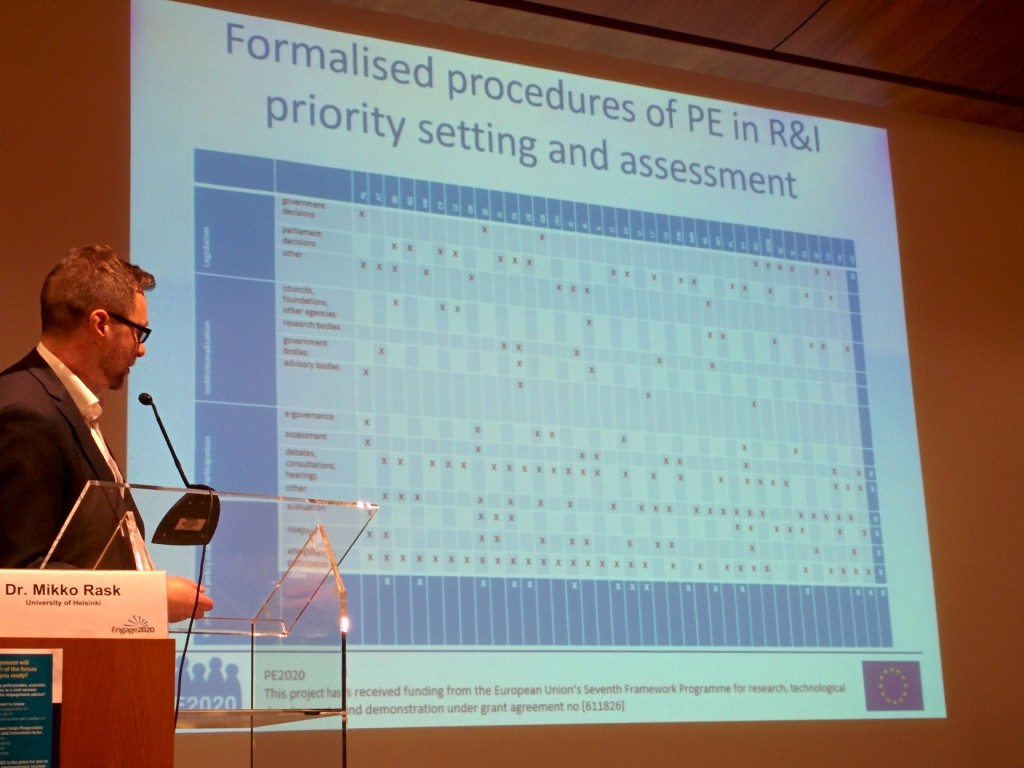The PE2020 consortium took part in a two-day conference Engaging Society in Responsible Research and Innovation: What’s Next? which took place 9th – 10th November 2015 in Brussels and was organised by the Engage2020 project (http://www.engage2020.eu).
The future of the European science and technology field depends on Responsible Research and Innovation (RRI). Wider engagement with European citizens, stakeholders and users is a crucial part of this emerging landscape. Regardless of what role you play in research and innovation in the future you will need to consider how societal actors can work with you to address societal challenges.
Continue reading European Conference: Engaging Society in Responsible Research and Innovation: What’s Next?


